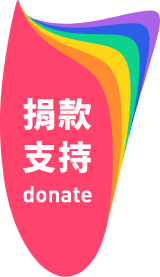RightsCon Participation Report: How Can We Create Inclusive Democratic Environments for Gender-Diverse Communities in the Digital Age?
Date: 2025.02.24 – 2025.02.27
Forum: RightsCon
Location: Taipei, Taiwan
TEC Representative: Researcher Yuanhsin Cheng
RightsCon is an international summit on digital technology and human rights, aiming to uphold universal values in the evolving digital landscape. The forum brings together a wide range of stakeholders to discuss important human rights issues in the digital era, including government agencies, tech professionals, journalists, political workers, corporate representatives, legal consultants, and human rights defenders. The 13th edition of RightsCon, which was hosted in Taipei for the first time, shows the increasing international acknowledgement of Taiwan's advancements in democracy, technology, and human rights.As a long-standing civic organisation focused on LGBTQI+ issues in Taiwan, the Taiwan Equality Campaign (TEC) joined RightsCon for the first time and co-hosted a session with Cofacts and the Citizen Congress Watch (CCW) titled “How Can We Create Inclusive Democratic Environments for Gender-Diverse Communities in the Digital Age?” In the session, we shared our advocacy tools and strategies for political engagement and oversight.
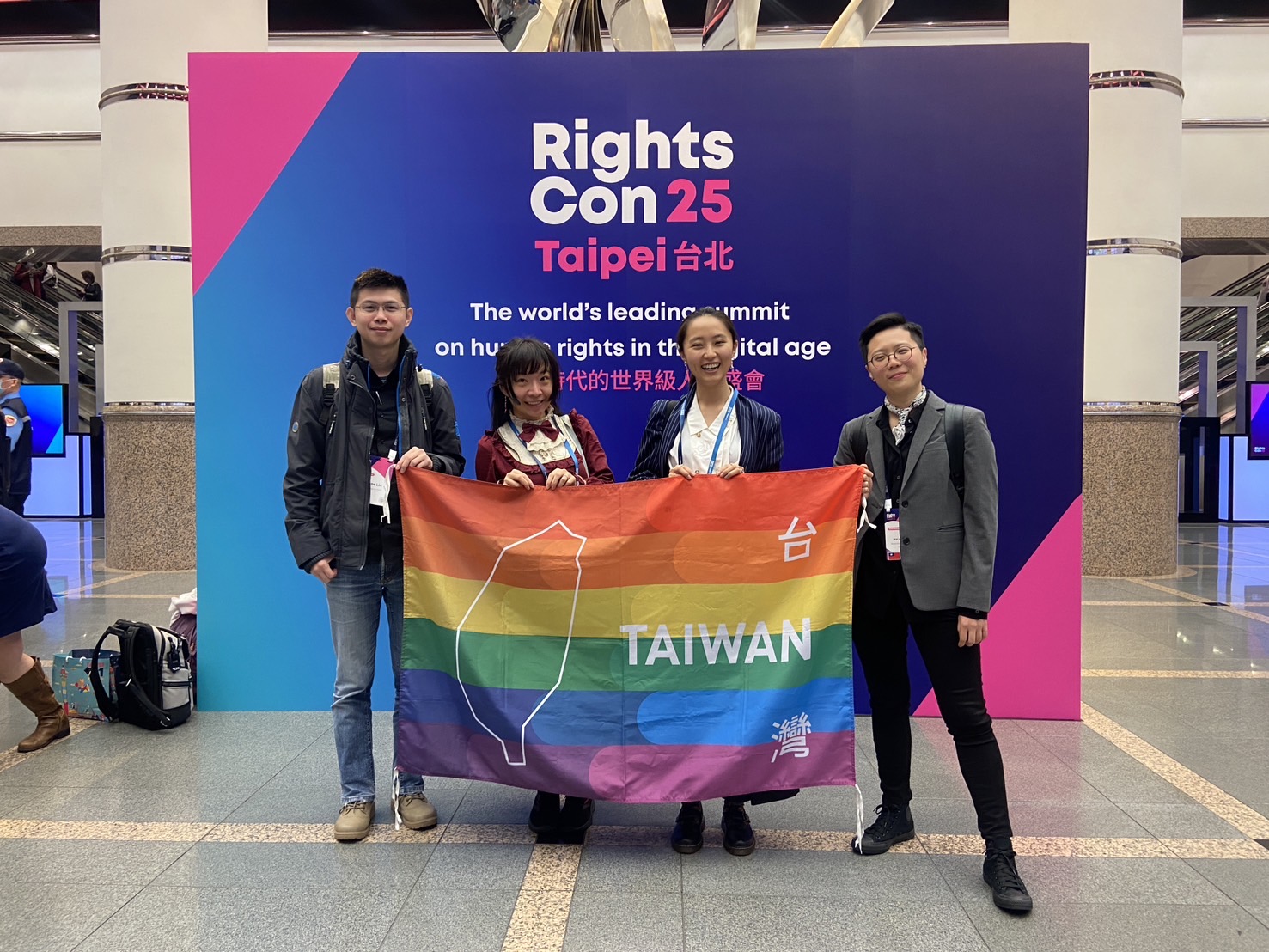
Harnessing Digital Technology to Embody Democracy: The Case of the PrideWatch
At our joint session, we presented PrideWatch, showcasing how we utilize digital tools to integrate political information before and after elections while encouraging candidates and voters to express their support for LGBTQI+ rights.PrideWatch consists of two main components: the Friendly Candidates page and the Rainbow Voter page. Candidates who answered our "Gender-Friendly Questionnaire" during their campaigns and promised to support LGBTQI+ policies and abstain from stigmatizing or discriminatory practices are known as Friendly Candidates. Through the use of digital technology, we developed an easily navigable portal that lists Taiwan's election districts together with the LGBTQI+-friendly candidates seeking office in each, empowering voters to make decisions based on common values.Beyond election time, PrideWatch continues to monitor politicians' actions while in office, including their proposals, appeals, and frequency of LGBTQI+-related questions. It also urges voters to confirm whether candidates keep their promises. A strong accountability system is established by allowing Rainbow Voters to record lawmakers' positive or negative remarks on the platform. In order to visualize the public's interest in LGBTQI+ issues and encourage candidates to stand up for the principles they fight for, we also track user involvement in each district.
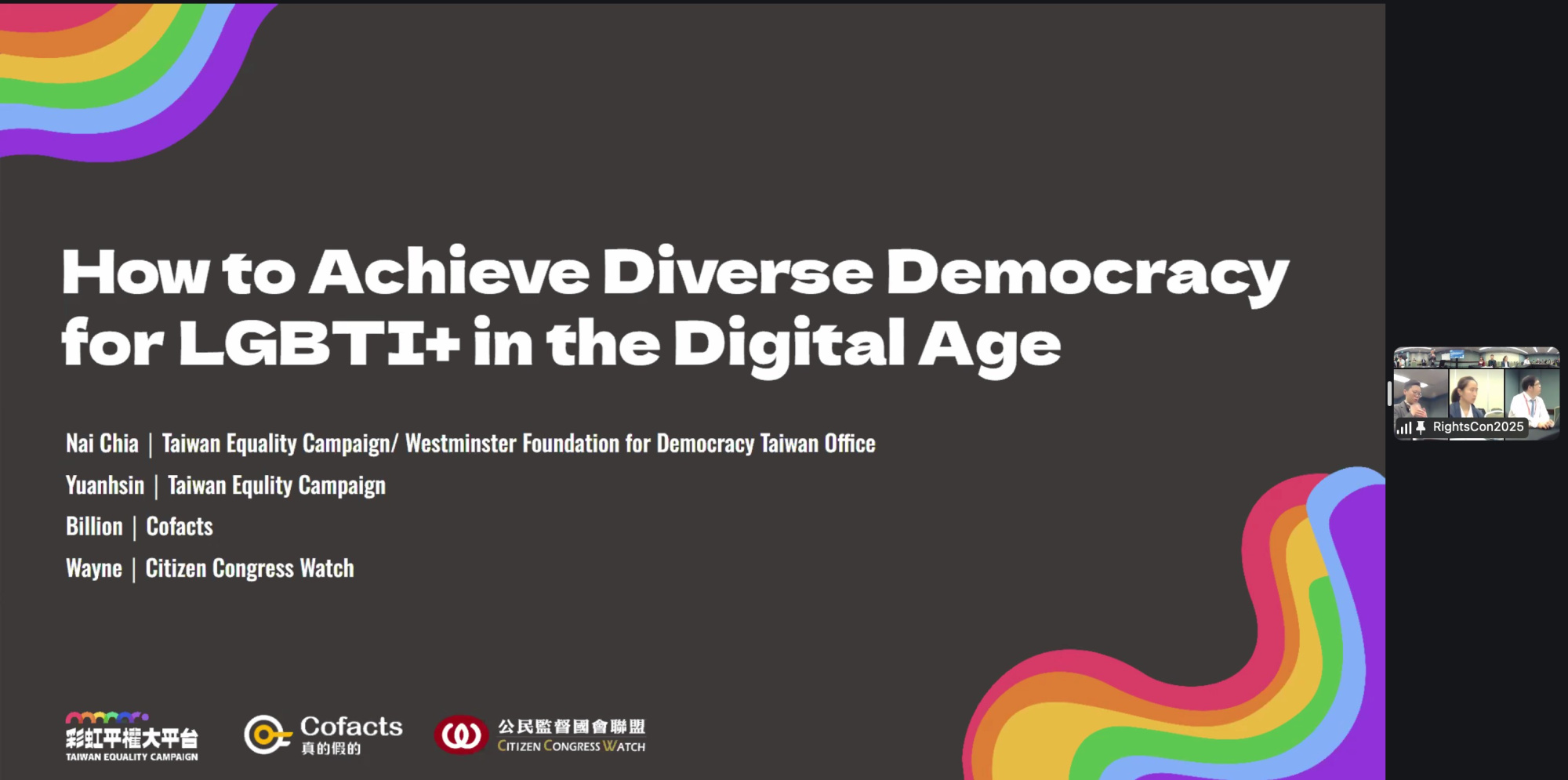
Transparency and Systematisation: Combating Misinformation & Enhancing Civic Oversight
In an era of rampant digital misinformation, marginalized communities such as gender-diverse individuals, people of colour, and persons with disabilities are especially vulnerable to online stigma and discrimination. During elections, smear campaigns and disinformation severely damage public discourse and threaten minority rights.Cofacts, through its chatbot integrated into popular messaging apps in Taiwan, actively confronts misinformation at its source, providing users with accurate and clear counter-information. Meanwhile, PrideWatch and CCW’s legislative monitoring tools ensure accountability within the political sphere, emphasising that political and legal systems—tasked with safeguarding public welfare—must proactively uphold equality and inclusion.Democracy requires ongoing voter monitoring. Cofacts, PrideWatch, and CCW all adopt a "co-creation" strategy that encourages public involvement in sharing information and reporting. This deviates from conventional one-way communication and emphasizes how digital technology has the special ability to alter power dynamics. Notably, each of these programs was created locally and adapted to the unique political structures and communication patterns of Taiwan. Localization is not always applicable; each community needs to come up with its own solutions. We find shared objectives and develop mutual understanding through shared experiences and context-specific adaptations—two essential components of international trade. We think that promoting diversity and equality internationally requires openness as well as the systematization of data and resources.
The Surge of Far-Right and Conservative Forces: How Can Taiwan Define Its Position and Narrative?
During the RightsCon conference, we deeply felt the pulse of the global political climate. Numerous organizations voiced their anxiety and concern over recent changes in U.S. policy and how they may affect international human rights. Simultaneously, the far-right parties' resounding wins in Germany were indicative of a larger worldwide trend: the rise of extreme right-wing movements as a highly coordinated and organized political force. These organizations are successfully advancing their goals in many areas by using simple yet powerful storylines, creating customized content for a range of social media channels, and launching carefully designed information campaigns.
This raised a fundamental query that permeated all of our discussions: How do we create narratives of our own? Policy decisions inevitably shape corporate and tech sector stances, and we’ve seen worrying signs—such as Meta’s algorithmic shifts and the rollback of DE&I policies by several global companies—of a growing conservative tendency that threatens marginalized communities. This is no longer an emerging trend but a global reality.In this situation, how can those of us who are dedicated to democracy and human rights strengthen our alliances, help one another, and together develop counter-narratives that inspire partners? In today's international occasion, this is among the most important questions. These discussions are made more complex by Taiwan's distinct political and diplomatic background, where local definitions of left and right diverge from those found elsewhere. We need to have a thorough, focused, and strategic conversation about how we respond to conservative opposition, both locally and internationally.
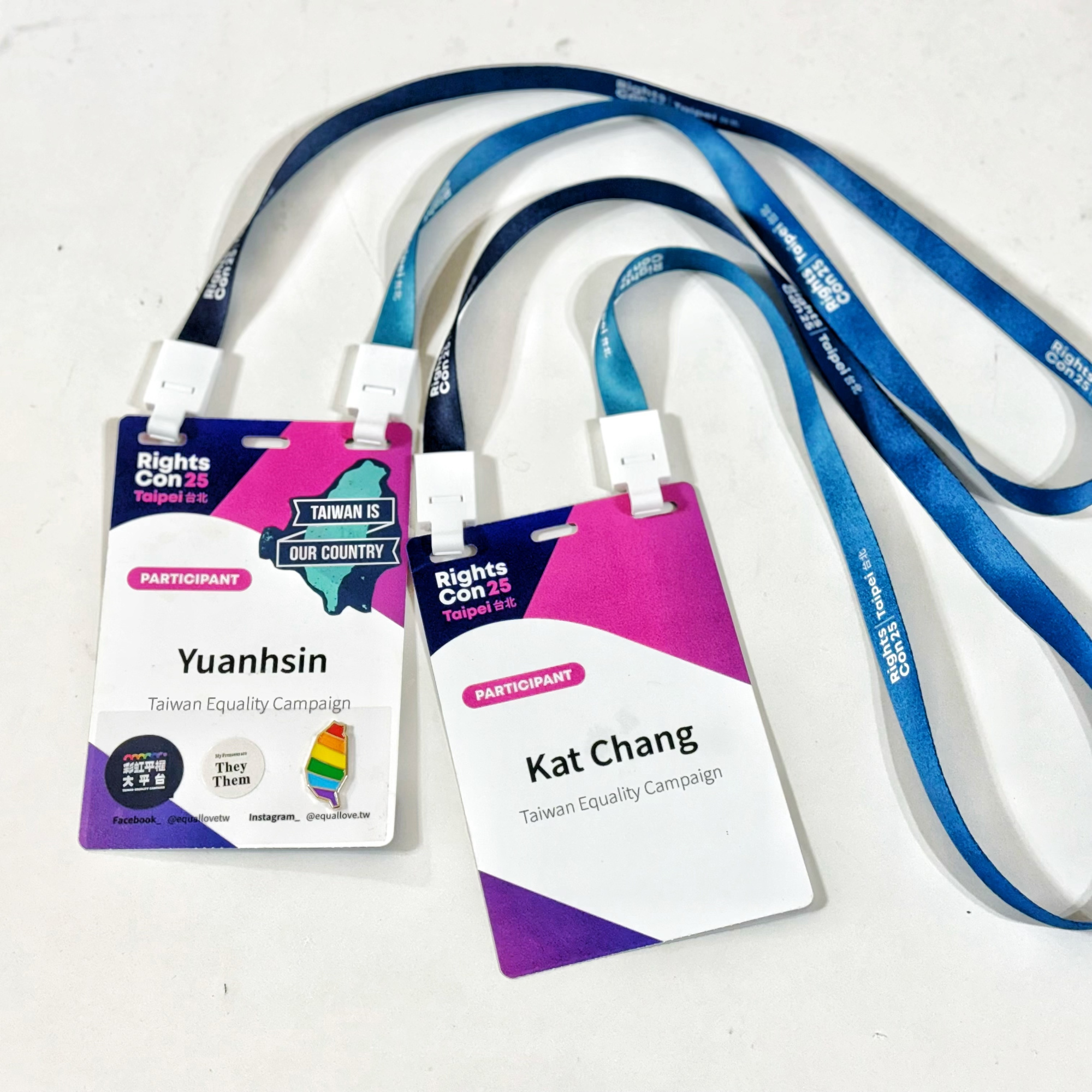
Cyberspace's Gender-Diverse Communities Face Common Challenges: Stigma, Declining Engagement, and Changing Algorithms
Being the first Asian nation to legalize same-sex marriage and a major contributor to the legislation's success, TEC participated in fruitful discussions at RightsCon. Thai individuals described how, despite a fall in public attention, online animosity toward gender nonconforming individuals increased after their country's same-sex marriage statute was passed.
“When the momentum decreases how do we keep advocating?” We have a common problem that we can solve in a particular manner. At the moment, Taiwan is negotiating this stage of "post-marriage equality." TEC's objective is to consistently detect disparities, create successful advocacy plans, and keep open lines of communication with the public. This demands a significant change in 2025: platform selection.We've seen how platform regulations, like Meta's removal of protections for LGBTQI+ users, can change the conversation, as seen by the large migration of American teenagers from TikTok to the Chinese app Xiaohongshu earlier this year. Choosing a platform is a political process by nature, and the costs involved (lower visibility, hazy reach, and resource strain) present important issues: Can civic organizations change with the times? Will new platforms be able to satisfy their needs?Although they were frequently discussed, these were rarely settled. The wisest course of action, however, is to continue to support global solidarity and exchange experiences on a case-by-case basis.
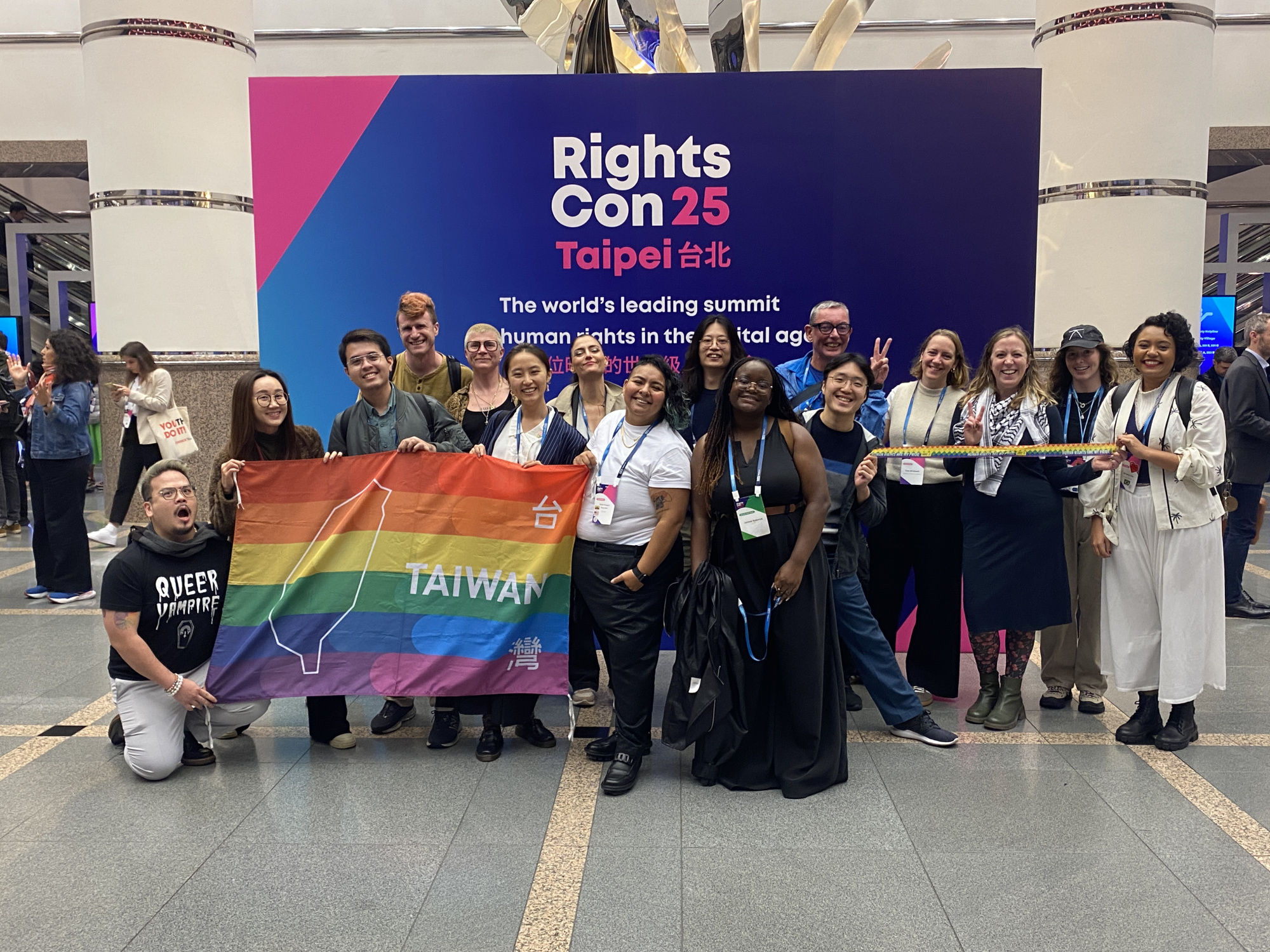
Conclusion: Overcoming Invisibility and Stigma—Bringing the Rainbow Everywhere
At RightsCon, we were reminded that even within broader human rights frameworks, gender-diverse issues often remain marginalised. From the U.S. administration’s binary-gender stance to the criminalisation of abortion and Taiwan’s contentious debates over assisted reproduction, it’s clear that discussions around gender and rights span a vast, complex spectrum. Only through deep, respectful dialogue can we develop effective, shared strategies.We learned at RightsCon that accuracy and privacy must be balanced when integrating a lot of research, from policies and surveys to hearings and academic advice. In the end, stigma and invisibility remain two persistent problems for gender-diverse people in the tech industry. In order to stay visible while anti-gender movements hone their rhetoric, our communities need to identify a common ground, show up, and speak out. In addition to using digital tools to combat misinformation, we also need to develop leadership in the fields of technology, policy, and decision-making so that we may shape the future within.Visibility and empowerment are connected, and it is crucial to increase our allies through active dialogue and narrative construction. This is demonstrated by TEC's PrideWatch, where our programs are making steady progress in fields including international alliance-building, political participation, and policy toolkits. Being a grassroots organization, we take pride in the significant impact our work is having on the global gender movement."The globality increases with locality." As universal LGBTQI+ advocates, we walk with our worldwide partners by recognizing common concerns through global exchanges and turning them into local strategies. We share Taiwan's experiences with the world because we think that when we all do our part, we set an example and the world advances as a whole.This is our belief.

